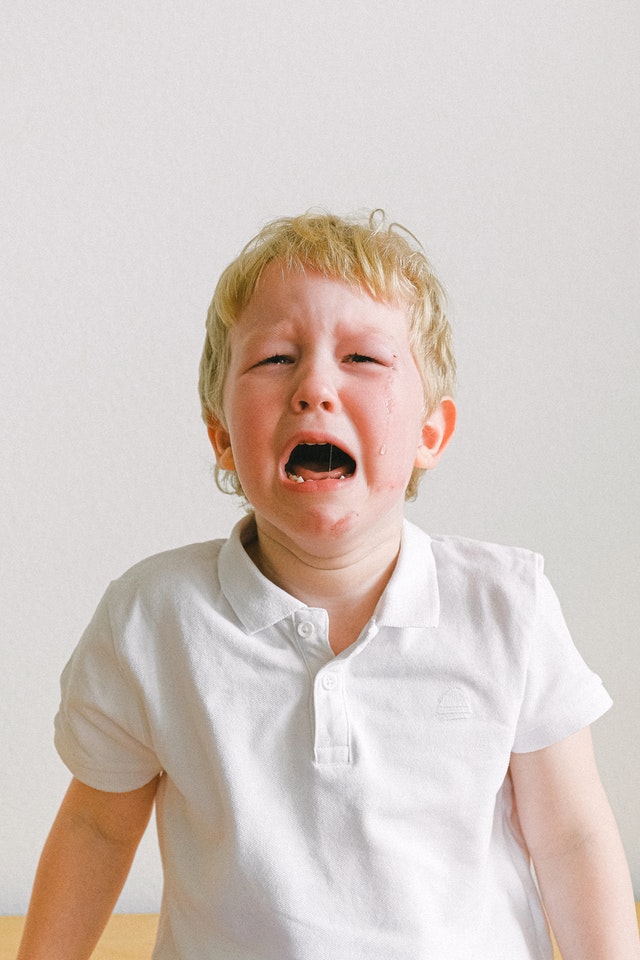Separation issues: First day at school

Probably the hardest thing for a parent to stomach is turning away from their crying child and leaving them in the hands of a stranger. At any nursery, kindergarten, school or daycare it is a scenario that occurs regularly throughout the year. It is extremely difficult for a parent to leave their child and all sorts of worries are likely to enter a parent’s mind:
- Will he stop crying?
- Will they ignore her if she is crying?
- Will she be scarred by the experience of Mum and Dad not being there?
- Am I doing the right thing?
- Should I go back?
These are just some of the hundreds of thoughts that may enter your mind as you walk away with your little one spouting out tears. In this blog I hope we can set some minds to rest and discuss some of the changes that you may or in some cases may not see at home. We will look at ways to help children cope with separation and how to cope as a parent too.
What are some of the common worries?
Other children are so much more well-adjusted
First of all not all children are the same. Some will always react differently from others. The age of the child, the upbringing at home, the sex of the child and even the stimulation that they have had growing up all affect how the child will react to suddenly being left with a stranger. Some children cry non-stop for the first week or two, some cry for just an hour but every day for the first couple of weeks and some cry at drop off and pick up only. Some children cry for an hour and that’s it; they are adjusted. The length of time that a child cries for does not determine the emotional quotient of the child but it is this separation issue that the child must work through as part of growing up. Do not start thinking that your child isn’t ready just because another child stopped crying more quickly. In many cases the last child to adjust is the one that adjusts the best.
Maybe they are not ready
The worst thing for a parent to do is give in to the crying. It is a tough time for both the child and the parents but we have had some parents want to keep their child at home until they are a little older and what they perceive as more “ready”. While children at different ages will react differently from one another and yes it may affect the length of adjustment time, it is fundamentally worse to pull them out of the process once it has started. A 1 year old may cry for a week compared to 3 days for a 2 year old but the same emotional upheaval will still be there no matter what the age. In addition a child’s knowledge of time is so insignificant that they won’t know the difference.
I could juggle work and start with 3 days a week
We also get occasions where parents want to send their children for half a day or for just three days a week. From experience this actually has an adverse effect on the child socially. The child finds it difficult as they struggle to get used to the routine. Some days they are at school, some days not, so they don’t know whether they are coming or going. While their friends are creating relationships and bonding the child has a different routine and it will take longer for them to fit in. If parents really do insist on part time daycare, then keep the routine regular. Half a day every day is a better compromise than alternate days, as at least the child will go through the separation more regularly and routinely.
My child’s behaviour is changing
This is inevitable and whether it be for good or bad it is something to be embraced. Your child is developing and adjusting to a new environment. They have suddenly been plunged into a world of new stimuli. Your child will want to know new things, will begin to question more and will have to learn to live with others in ways that they never have before. They will have to share the attention of the adults and share their toys with strangers for the first time. If a child begins to behave badly or react negatively, welcome the changes and speak to the child carers or teachers to find out what might be causing the new behaviour traits. Together nurture the child and help them to find a way through it. By taking them out of that environment the child will not have learnt anything.
So how can I help my child’s transition?
There are many ways in which the daycare or school will help your child to adjust but there are also things that you can do yourself too. We have already talked about routines but some simple tricks will make the separation smoother.
Don’t work alone
The first thing to remember is that you are not alone. Your child’s wellbeing is the priority of the school, kindergarten, preschool or whoever else is taking care of your child. You must work together. Do not make decisions by yourself. Although as the parent you do know your child better than anyone, and as much as you may think that you know best, please, remember that the people who you are paying to take care of your child have been doing it a lot longer than you have been a parent. They have studied it and they have made a career out of doing it. That’s not to say that you should accept everything they say, but you should work as a team to help your child settle.
Reassure your child but leave quickly and confidently
Children have this amazing ability to sense when something is wrong. This attachment is especially strong with mothers, so as hard as it is to do, do not show your child the whirlwind of emotions that are swirling around inside you. Confidently say that you are going away now but will be back very soon and that these carers are very trustworthy; wave goodbye and leave. The worst thing you can do is hover around giving your child time to remember why they are crying and to start all over again.
Bring your child early
Stay with your child at the beginning of the day and let them play. Show them that the environment is fun and that they are safe before saying goodbye and telling them that you will be back soon. Children cry because they miss their parents or feel insecure. Once they are engaged, or distracted, it is much easier for them to say goodbye.
At the end of the day please remember your child WILL cry. I have seen thousands of children come to school for their first day and I don’t remember a single one that didn’t cry. Even children as old as 10 have on occasions cried. We have all ourselves been through this and turned out fine. Your child will have to go through this process at some point, so get it out the system early and move on. Your child will thank you for instilling this early confidence as it will help them with their approach to growing up and give them a healthy attitude when exploring new things independently.
British Early Years Centre is an International School in Bangkok. We follow the British Early Years Foundation Stage Curriculum (EYFS)
